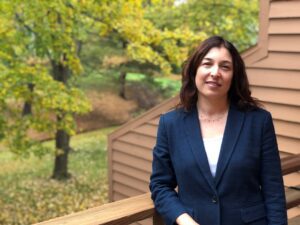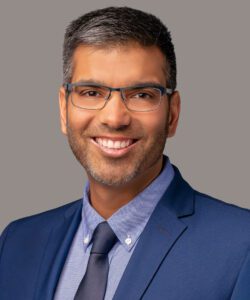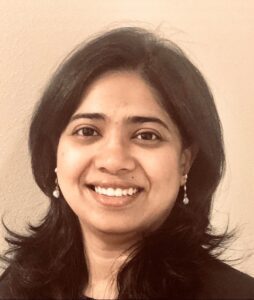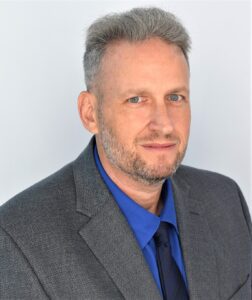NorCal ADR Faculty Conference 2021: Virtual Learning and Inclusion
For almost 20 years, the Center for Negotiation and Dispute Resolution (CNDR) and our co-host, the Martin Daniel Gould Center for Conflict Resolution at Stanford Law School, have gathered law, business school, and undergrad ADR and Negotiation faculty from throughout Northern California to explore new topics and innovations in pedagogy in dispute resolution. It is also an opportunity to connect with others in the field and build relationships.
As a nod to the challenges and changes this year, the 2021 Northern California ADR Faculty Conference theme was Virtual Learning & Inclusion, and it was held on February 19, 2021. Since this year’s program was virtual, we opened it up beyond local faculty and were joined by over 40 ADR faculty from across the country and even abroad!
This year’s presentations focused on best unknown tips for virtual instruction, incorporating racial discussions in to the classroom, and how the ADR field will continue to change considering our new virtual world. Please read about the programs and speakers below, and we hope to see you next year!
2021 Speakers and Programs
Secrets Revealed, What No One Told You About Online Instruction
Presented by Toby Guerin
In a practical session that gave us all a few more tools to use in the virtual classroom, Professor Guerin presented her missteps, successes, and overall lessons learned from this year’s quick transition from teaching in-person classes to the virtual environment. This change provided to be a rather daunting task for many faculty, and particularly those who lead simulation and experiential courses that are common in the ADR field. The workshop focused on three key areas of general instruction, student engagement, and assessment, with an eye towards how we can keep students participatory while still leaving room for inevitable adjustments.
 Toby Treem Guerin, J.D. is the Associate Director for the Center for Dispute Resolution at Maryland Carey School of Law and Clinical Instructor. At Maryland Carey Law she teaches and advises students on dispute resolution courses and careers. Ms. Guerin has over fifteen years of experience as a neutral in various venues including government agencies, non-profit organizations, schools, and court systems. She served as the first chairperson of the Mediator Excellence Council, a mediator quality assistance initiative in Maryland and is the primary author of the Maryland ADR Landscape, a comprehensive overview of court-affiliated ADR programs in Maryland. She is a trained mediator, facilitator, conflict-coach, ombudsperson, and restorative practitioner. She regularly trains on topics from basic to advanced mediation, co-mediation, giving and receiving feedback, and negotiation. Ms. Guerin is the past chair of the MD State Bar Association’s Alternative Dispute Resolution Section and the recipient of the 2020 Chief Judge Robert M. Bell Award for Outstanding Contribution to ADR in Maryland.
Toby Treem Guerin, J.D. is the Associate Director for the Center for Dispute Resolution at Maryland Carey School of Law and Clinical Instructor. At Maryland Carey Law she teaches and advises students on dispute resolution courses and careers. Ms. Guerin has over fifteen years of experience as a neutral in various venues including government agencies, non-profit organizations, schools, and court systems. She served as the first chairperson of the Mediator Excellence Council, a mediator quality assistance initiative in Maryland and is the primary author of the Maryland ADR Landscape, a comprehensive overview of court-affiliated ADR programs in Maryland. She is a trained mediator, facilitator, conflict-coach, ombudsperson, and restorative practitioner. She regularly trains on topics from basic to advanced mediation, co-mediation, giving and receiving feedback, and negotiation. Ms. Guerin is the past chair of the MD State Bar Association’s Alternative Dispute Resolution Section and the recipient of the 2020 Chief Judge Robert M. Bell Award for Outstanding Contribution to ADR in Maryland.
Incorporating Race Into ADR Instruction
Presented by Kavya Mohankumar and Shirish Gupta
 In addition to transitioning to a virtual teaching environment, educators have been shifting from a race-neutral or race-avoiding syllabus to a race-conscious one. UC Law SF Adjunct Professors Gupta and Mohankumar co-presented on several specific ways they have actively worked to incorporate race-based discussions into the classroom. They focused on the importance of talking about race early, even if it’s in a small way, and building up trust to open further in-depth dialogues; and that faculty should be intentional about the quality and content of classroom materials.
In addition to transitioning to a virtual teaching environment, educators have been shifting from a race-neutral or race-avoiding syllabus to a race-conscious one. UC Law SF Adjunct Professors Gupta and Mohankumar co-presented on several specific ways they have actively worked to incorporate race-based discussions into the classroom. They focused on the importance of talking about race early, even if it’s in a small way, and building up trust to open further in-depth dialogues; and that faculty should be intentional about the quality and content of classroom materials.
Shirish Gupta serves as an Adjunct Professor at UC Law SF, a Lecturer at UC Berkeley Law School and a Lecturer with Santa Clara Law School. He is sought out by law firms and in-house departments for mediation and negotiation trainings. Shirish is an award-winning mediator and arbitrator with JAMS and is known for his legal acumen and economic prowess, which makes him particularly adept at diving into complex financial/technical disputes, including IP, regulatory and accounting, environmental and class actions. Shirish is sought out by Silicon Valley startups, as well as Fortune 500 companies. In 2014, The Recorder conducted an extensive survey of Bay Area attorneys and named Shirish the Best Independent Mediator. Prior to joining JAMS, Shirish practiced law with Mayer Brown, Howard Rice and Flashpoint Law. Shirish has been a leader in the majority and diverse bar associations. Shirish served as Co-Chair of the California State Bar Council of Sections, President of the South Asian Bar of Northern California and Alternate Regional Governor of National Asian Pacific American Bar Association.
 Kavya Mohankumar is an in-house attorney specializing in data privacy and complex commercial & technology transactions. Ms. Mohankumar currently serves as Associate General Counsel at Rodan + Fields, LLP in San Francisco, where she leads a team responsible for successfully negotiating the company’s commercial contracts, deals and acquisitions. In addition to teaching Negotiations at UC Law SF, Ms. Mohankumar also serves as adjunct professor for Civil Procedure at the Lincoln Law School of San Jose. Ms. Mohankumar graduated from Santa Clara University School of Law in 2006, and also holds a Bachelor’s degree in LifeSciences & Biochemistry from the St. Xavier’s college in Mumbai, India.
Kavya Mohankumar is an in-house attorney specializing in data privacy and complex commercial & technology transactions. Ms. Mohankumar currently serves as Associate General Counsel at Rodan + Fields, LLP in San Francisco, where she leads a team responsible for successfully negotiating the company’s commercial contracts, deals and acquisitions. In addition to teaching Negotiations at UC Law SF, Ms. Mohankumar also serves as adjunct professor for Civil Procedure at the Lincoln Law School of San Jose. Ms. Mohankumar graduated from Santa Clara University School of Law in 2006, and also holds a Bachelor’s degree in LifeSciences & Biochemistry from the St. Xavier’s college in Mumbai, India.
KEYNOTE SPEAKER
Beyond Technology: Negotiation Keeps On Changing
Presented by Noam Ebner
 The 2021 Keynote speaker was our colleague Professor Ebner. He took us deep into a discussion on how the COVID-19 era has deeply impacted conflict, negotiation, formal dispute resolution mechanisms, and mediation practice, the world over. With the transition to online activity, focus on the nuts and bolts of online process conduct, and on the technology’s effects on processes, is understandable and important. However, Professor Ebner suggests that technology itself is the least interesting part of the changes that parties to conflict will encounter in the years to come. Technology’s utility notwithstanding, focusing primarily on its use for online processes only distracts us from a far more significant upheaval taking place over the past few decades: people are changing. Changing as humans, changing as parties, negotiators and mediators. The pandemic era has only accelerated this process. He asked us all to consider: How are humans changing? What areas of negotiation and conflict are affected? What are the impacts of such change on negotiation theory, and conflict practice? What roles can our classrooms serve in coping with such change? What will that require of us, as teachers?
The 2021 Keynote speaker was our colleague Professor Ebner. He took us deep into a discussion on how the COVID-19 era has deeply impacted conflict, negotiation, formal dispute resolution mechanisms, and mediation practice, the world over. With the transition to online activity, focus on the nuts and bolts of online process conduct, and on the technology’s effects on processes, is understandable and important. However, Professor Ebner suggests that technology itself is the least interesting part of the changes that parties to conflict will encounter in the years to come. Technology’s utility notwithstanding, focusing primarily on its use for online processes only distracts us from a far more significant upheaval taking place over the past few decades: people are changing. Changing as humans, changing as parties, negotiators and mediators. The pandemic era has only accelerated this process. He asked us all to consider: How are humans changing? What areas of negotiation and conflict are affected? What are the impacts of such change on negotiation theory, and conflict practice? What roles can our classrooms serve in coping with such change? What will that require of us, as teachers?
Noam Ebner is a professor of negotiation and conflict resolution at Creighton University. Previously, he taught at a number of universities around the world while practicing as an attorney, negotiator, mediator, and mediator trainer. An early innovator in the online teaching of negotiation and conflict resolution, Noam chaired Creighton’s online graduate program on Negotiation and Conflict Resolution for many years, teaching dozens of courses online while spearheading the program’s curricular and pedagogical development. He has consulted on online learning to programs, universities, and teachers, and taught a Massive Open Online Course (MOOC) on negotiation.
Noam co-edited The Palgrave Handbook of Cross-cultural Business Negotiation (2019) and Assessing Our Students, Assessing Ourselves; Vol.3 in The Rethinking Negotiation Teaching Project (2012). His writing (http://ssrn.com/author=425153) focuses on negotiation pedagogy; trust in negotiation; Online Dispute Resolution; and the future of the negotiation, mediation, and legal fields. Currently, he is co-editing a book on Star Wars and Conflict Resolution.